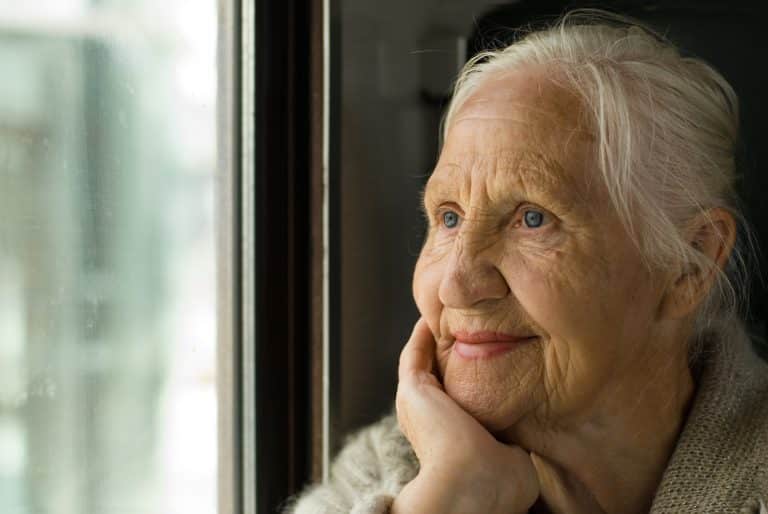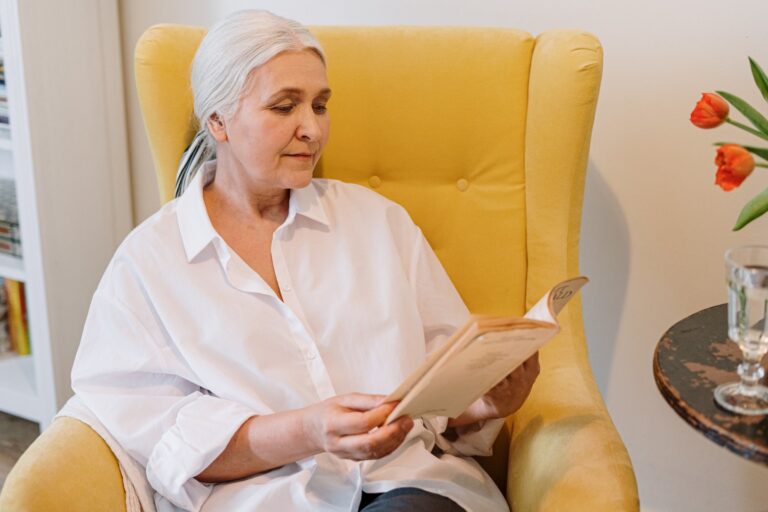Assistive Technologies for Dementia: Enhancing Elderly Care
Assistive technologies for dementia have become increasingly important in providing comprehensive care and support to individuals living with this condition. These innovative tools not only enhance the quality of life for patients but also offer relief to caregivers by simplifying their responsibilities. In this blog post, we will delve into various assistive technologies designed specifically for dementia care.
We will explore smart-home technologies that aid in medication management and fall detection, as well as non-constraining devices used in care homes such as digital calendars and electronic pill dispensers. Additionally, we will discuss Assistive Technologies for Dementia, including light therapies and 3D avatars that can be employed within home-care settings to improve communication between caregivers and patients. These innovative technologies play a crucial role in enhancing the quality of life for individuals with dementia, providing support, and promoting independence.
In addition to these technological advancements, therapeutic support interventions on tablets such as art therapy apps and cognitive stimulation games tailored for dementia patients are proving beneficial. Lastly, we will highlight psycho-education programs aimed at equipping caregivers with stress reduction techniques specific to caregiving situations while maintaining self-care.
The adoption of assistive technologies in early dementia care presents numerous benefits, including reduced healthcare expenses through proactive interventions and improved safety measures for aging patients. Join us as we examine these cutting-edge solutions transforming the landscape of dementia care today, not only for patients but also for assisted living staff. These technologies empower the assisted living staff to provide more personalized and efficient care, enabling them to monitor residents’ well-being, track medication adherence, and respond promptly to any emergencies or changes in condition. By leveraging assistive technologies, assisted living staff can enhance the overall quality of care and support provided to individuals with dementia.
Table of Contents:
- Smart-Home Technology for Dementia Care
- Monitoring Systems for Safety
- Automated Reminders for Medication Management
- Non-Constraining Technologies in Care Home Settings
- Revolutionizing Dementia Care with Light Therapies and 3D Avatars
- Therapeutic Support Interventions Using Tablets
- Enhancing Dementia Care with Psycho-Education Programs
- Assistive Technologies Impact on Carers
- FAQs in Relation to Assistive Technologies for Dementia
- Conclusion
Smart-Home Technology for Dementia Care
Managing daily tasks for individuals with dementia can be challenging, but smart-home technology can help improve dementia care.
Monitoring Systems for Safety
Install monitoring systems like sensors or cameras to track movements and ensure safety, providing peace of mind for caregivers.
Automated Reminders for Medication Management
Smart-home devices like voice assistants can provide automated reminders for medication management, reducing the risk of missed doses.
- Sensor-based medication dispensers: Devices like MedMinder automatically dispense pills according to a pre-set schedule.
- Voice-assisted medication reminders: Voice-controlled smart speakers can be programmed with personalized reminders about specific medications or dosages.
- Motion-sensitive alarms: Alarms can be set to trigger when medication hasn’t been taken within a specified time frame.
By incorporating smart-home technology into dementia care routines, caregivers and patients can benefit from increased safety measures and improved quality of life.
Non-Constraining Technologies in Care Home Settings
Assistive technology can improve dementia care by providing non-constraining devices like digital organizers and electronic reminders.
Digital calendars for appointment tracking
Digital calendars and dementia-friendly calendar clocks help individuals with cognitive decline stay organized and maintain their independence.
Electronic pill dispensers to prevent missed doses
- Automated Pill Dispensers: Devices like the Med-Q Pill Box provide audible alarms and flashing lights to ensure patients take their medications on time.
- Pill Reminder Apps: Apps like the MyPills app send notifications to users’ devices when it’s time to take their medications.
These devices help patients stay on track with their treatment plans and reduce caregiver stress.
By incorporating non-constraining technologies into care home settings, individuals with dementia can maintain their autonomy while receiving the support they need to manage daily tasks effectively.
Revolutionizing Dementia Care with Light Therapies and 3D Avatars
Light therapies and 3D avatars are transforming dementia care by managing behavioral symptoms and promoting creative expression.
Light Therapy: Regulating Sleep Patterns and Improving Mood
Bright artificial light can regulate sleep patterns and improve mood in people with dementia, reducing sundowning behaviors and depression symptoms.
3D Avatars: Enhancing Caregiver-Patient Interaction
3D avatars help caregivers communicate with patients who struggle with verbal communication, stimulating memory recall and social interaction.
- Example: Personalized avatars resembling family members or friends can trigger positive memories.
- Potential benefits: Increased engagement, reduced agitation, and improved overall well-being for the patient.
By incorporating assistive technology like light therapies and 3D avatars, caregivers can provide a comprehensive approach to managing behavioral symptoms and enhancing the quality of life for individuals with cognitive decline.
Therapeutic Support Interventions Using Tablets
Tablets offer a wide range of possibilities for individuals with dementia, providing therapeutic support that caters to their unique needs.
Art therapy apps encourage self-expression and creativity in people with dementia, while cognitive training games improve memory retention and other mental abilities.
- Better communication: Tablets allow caregivers to communicate more effectively with individuals who have dementia.
- Personalized care: The wide range of available apps allows caregivers to tailor their approach according to the specific needs and preferences of each individual with dementia.
- Increased engagement: Tablets offer a variety of engaging activities that can help reduce agitation, boredom, and other behavioral symptoms commonly experienced by people with dementia.
Popular art therapy apps include Doodle Buddy, Pigment, and Tayasui Sketches, while cognitive training games include Lumosity Brain Training App, Elevate – Brain Training Games, and Peak – Brain Games & Training.
Incorporating tablets into the lives of those with dementia has been found to be highly advantageous, thus making them an indispensable piece of assistive technology for dementia care.
Enhancing Dementia Care with Psycho-Education Programs
Psychoeducation programs equip caregivers with coping mechanisms to address common issues in dementia care, ensuring they can provide adequate support without compromising their mental health.
Online Courses for Effective Dementia Care
Online courses offer practical tools and knowledge to help caregivers manage communication, behavioral symptoms, and safety concerns in dementia care.
Check out Alzheimer’s Association’s online courses for dementia care strategies.
Support Groups for Emotional Backing
Support groups provide emotional support and a sense of community for caregivers facing similar situations.
Find a local support group to connect with others and exchange advice on assistive technology usage and navigating complex emotions tied to caregiving responsibilities.
- Bonus Tip: Attend workshops focused on utilizing assistive technologies within the daily routines of patients suffering from cognitive decline.
- Note: Participation in psychoeducation programs and support groups is crucial for both professional healthcare providers and family members involved in caregiving to improve the overall quality of care provided.
Assistive Technologies Impact on Carers
Assistive technology (AT) in dementia care has promising results, but it’s essential to consider its impact on caregivers too.
A study examining the effects of ATs on carers revealed that participants were generally satisfied with their use, but they reported problems as dementia patients’ needs worsened over time.
Caregiver Satisfaction with AT Usage
Many carers noted that using assistive technology facilitated their responsibilities and enhanced the well-being of both themselves and those with dementia.
Despite these benefits, some challenges arose when adapting to new technologies or dealing with advanced stages of cognitive decline.
Addressing Caregiver Mental Health Concerns
The same study highlighted lower mental health component scores among caregivers who used ATs compared to those who did not, suggesting a need for additional support in addressing these challenges effectively.
- Prioritize training: Ensure caregivers receive proper training on how to utilize various assistive technologies effectively while being sensitive to patients’ changing needs.
- Create a support network: Encourage caregiver participation in support groups where they can share experiences, and advice, and learn from others facing similar situations.
- Implement psychoeducation programs: Offer online courses and resources that teach dementia care strategies, coping mechanisms, and ways to maintain mental well-being.
Incorporating assistive technologies in dementia care can provide significant benefits for both patients and caregivers, but it’s crucial to address the challenges faced by carers while using these devices to ensure their mental health remains a priority.
FAQs in Relation to Assistive Technologies for Dementia
What assistive technology can help dementia patients?
Assistive technology for dementia patients includes medication management systems, fall detection sensors, digital calendars, electronic pill dispensers with alarms, light therapy devices, virtual assistants, and cognitive stimulation games.
What are essential coping strategies for dementia?
Essential coping strategies for dementia involve maintaining a structured daily routine, creating a safe home environment, staying socially engaged, practicing stress reduction techniques, and seeking professional guidance from healthcare providers.
What technology can help locate someone with dementia who has wandered from home?
GPS tracking devices and wearable technology such as smartwatches or bracelets equipped with location services can be used to quickly locate individuals with dementia who have wandered away from their homes.
How does assistive technology benefit the elderly?
Assistive technology promotes independence in daily tasks, enhances communication between caregivers and patients, and improves the overall quality of life for the elderly. This includes managing medications effectively, providing timely reminders for appointments, and reducing healthcare expenses related to long-term care facilities or hospitalizations. In an assisted living community in Horsham, these assistive technologies can be integrated seamlessly into the daily routines of residents, ensuring their safety, well-being, and peace of mind.
Conclusion
Assistive Technologies for Dementia
Assistive technologies like medication management systems and fall detection sensors can improve safety measures in care homes.
Digital calendars and electronic pill dispensers can help patients manage their daily routines more effectively.
Light therapies, virtual assistants, art therapy apps, and cognitive stimulation games have potential benefits for improving the quality of life of those living with dementia.
Psycho-education programs for caregivers can also provide proactive support that enhances patient safety and well-being in home-care settings.
Early interventions using these assistive technologies may reduce healthcare expenses.
Caregivers should explore the different options available to determine which technology best meets their needs.







